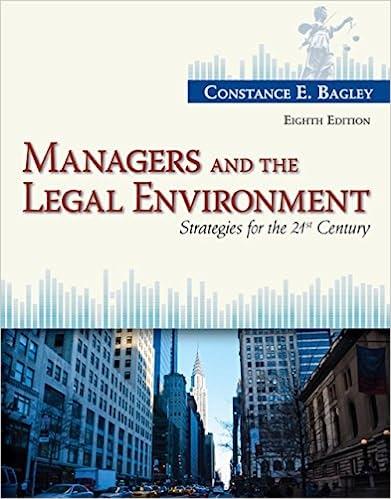Shaun McCutcheon, an Alabama resident, and the Republican National Committee challenged the constitutionality of the aggregate limit
Question:
Shaun McCutcheon, an Alabama resident, and the Republican National Committee challenged the constitutionality of the aggregate limit provision of the Federal Elections Campaign Act of 1971. Under the act, a "person" is subject to both a base contribution limit and an aggregate contribution limit. The base contribution limit regulates "how much the contributor may give to specified categories of recipients," including political candidates, political parties and their committees, and non-party political committees. The aggregate limit regulates the total amount an individual may give in a two-year cycle. Under the base limit, an individual could conceivably contribute up to $3.5 million to these various candidates and groups. But because of the aggregate limit, that individual could (during a two-year period) contribute a total of no more than $46,200 to candidates and their authorized committees and no more than $70,800 to others (e.g., political action committees).
The plaintiffs argued that the aggregate contribution limits impermissibly burdened their free speech rights because they were "unsupported by any cognizable government interest . . . at any level of review." At a minimum, the plaintiffs asserted, the limits failed to satisfy the test of strict scrutiny.
Do the contribution limits violate the First Amendment? What governmental interests are implicated?
Step by Step Answer:

Managers And The Legal Environment Strategies For The 21st Century
ISBN: 9781285860374
8th Edition
Authors: Constance E. Bagley





